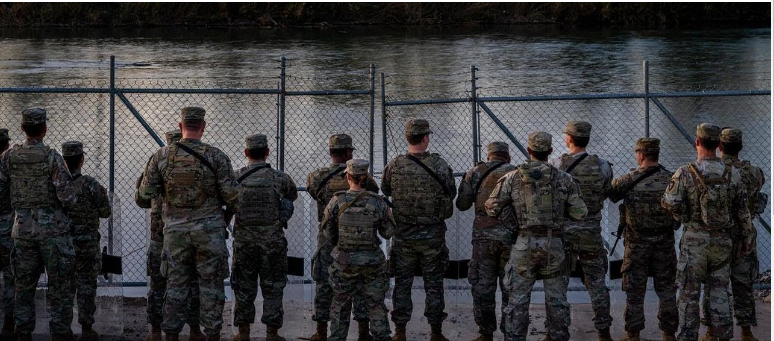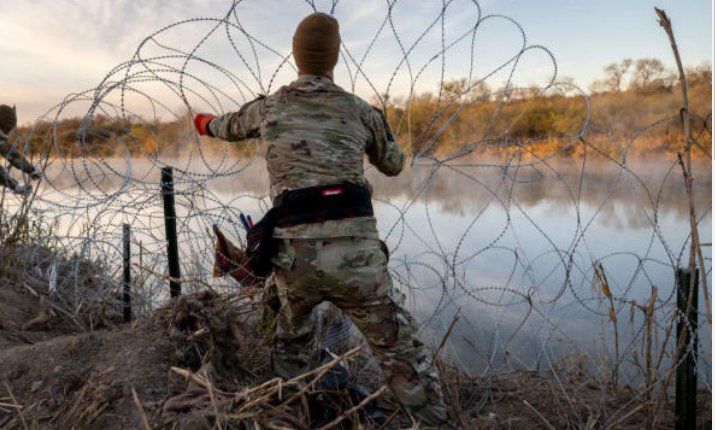In a striking display of federal-state tension, Texas has defied a federal demand to vacate a public park along the U.S.-Mexico border in Eagle Pass. This confrontation exemplifies the ongoing struggle between state and federal authorities over immigration control and border management. CBS News Immigration Reporter Camilla outlines the latest developments in this escalating conflict.
Texas’ Standoff with Federal Officials
The core of the dispute is Texas’ recent move to block U.S. Border Patrol agents from accessing a public park in Eagle Pass, a border town. Texas authorities, with the support of National Guard soldiers, have commandeered the park, claiming it is necessary to deter illegal migrant crossings. This action challenges the traditional federal jurisdiction over immigration and border issues.
Humanitarian Implications and Legal Struggles
The standoff is not just a legal battle but also has serious humanitarian implications. The U.S. Border Patrol has historically used this area as a staging ground to process migrants and respond to emergencies. Recent incidents, like the tragic drowning of a mother and two children in the Rio Grande near Eagle Pass, highlight the critical need for federal agents to access these areas promptly. Texas’ actions have been criticized for impeding federal agents’ ability to carry out their duties, especially in emergency situations.
Next Steps in the Legal Arena
The Department of Homeland Security has indicated that if Texas does not relent, the issue will be escalated to the Justice Department for potential legal action. This could result in a lawsuit, further intensifying the legal tussle between the state and federal government. The Biden administration has already taken steps against Texas in other immigration-related legal matters, showcasing the ongoing struggle over jurisdiction and authority.
The Broader Debate on Immigration Control

This incident in Eagle Pass is part of a larger debate over the role of states in immigration enforcement. Texas is attempting to assert more control over immigration within its borders, including a new state law set to criminalize unauthorized immigration at the state level. This move has been challenged by the Justice Department as an overstep of state authority in a domain traditionally governed by federal law.
A Defining Moment for Border Policy
Read More:
- New details for California Forever development in Solano County
- Navigating the Legality and Safety of Barefoot Driving in Ohio
- DoorDash Halts Operations in Tennessee Amidst Winter Storm: A Comprehensive Analysis
The standoff at Eagle Pass marks a significant moment in the ongoing debate over immigration and border control in the United States. It raises crucial questions about the balance of power between state and federal governments and the humanitarian costs of such legal confrontations. As this situation unfolds, it will likely have far-reaching implications for immigration policy, state-federal relations, and the lives of those directly affected by border enforcement practices.

